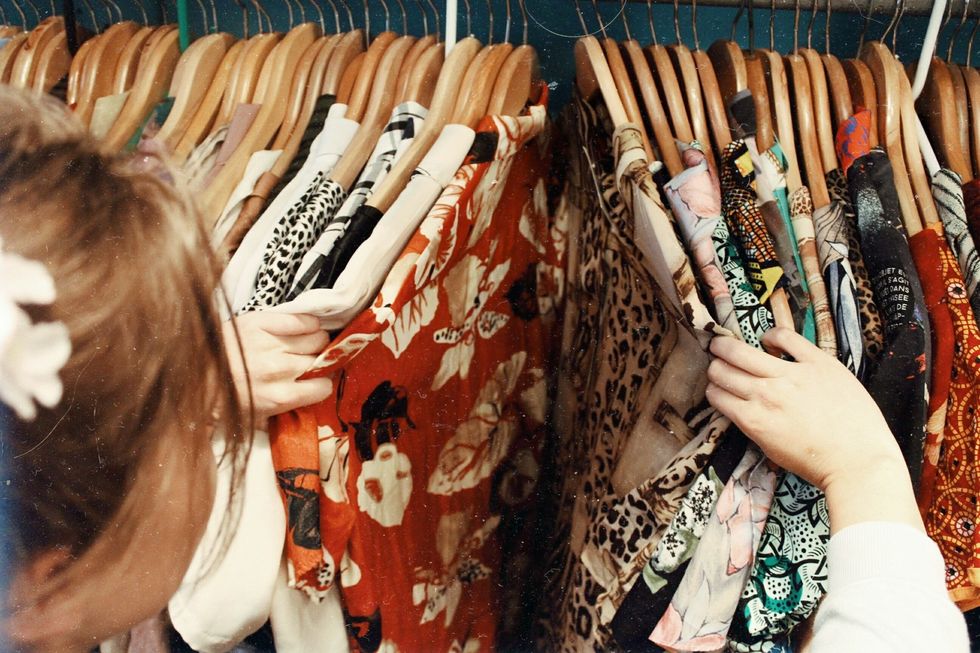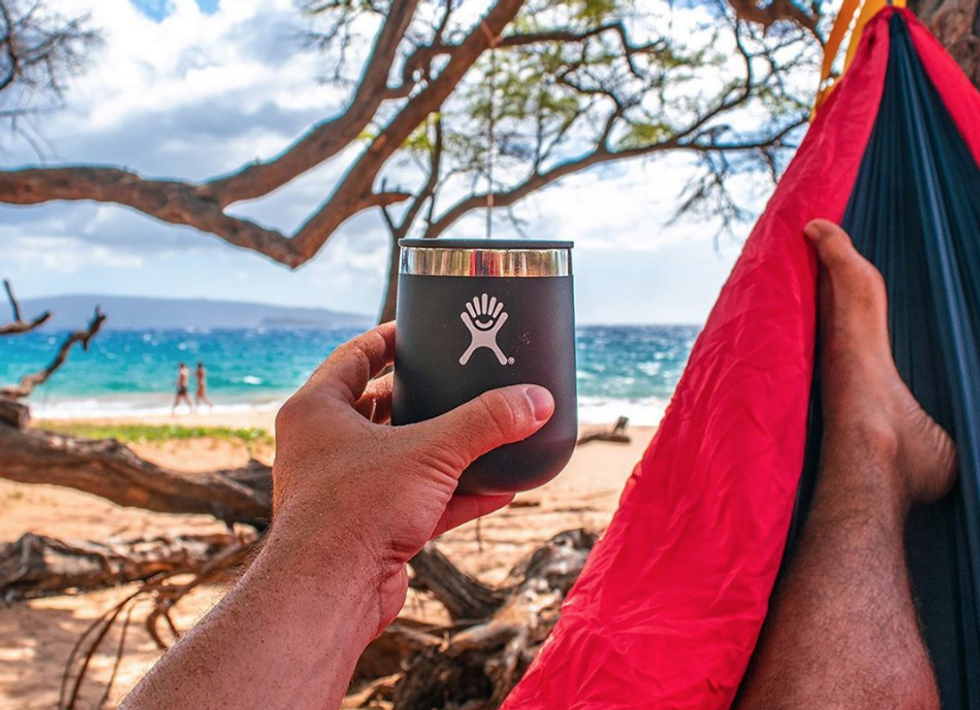Experts say we have little over a decade to change our habits and heal the planet before climate change does irreversible damage. Some companies are looking towards more eco-friendly options — producing less waste and lowering their emissions — but the majority are still concerned with the cost of these options. With humans producing over 300 million tons of plastic every year, it's time to take a step back and think about how we ourselves contribute to this staggering number. By making these easy changes to your lifestyle, you can help be part of the solution.
1. Bring reusable bags to the store

The average American takes home about 1,500 plastic shopping bags a year. These bags are some of the most harmful plastics for the environment — because they're so thin that they can't be recycled. These bags are considered "single-use" plastics and end up in oceans, rivers, and streams, and never decompose. A few good cloth bags are the perfect alternative. You'll never have to use plastic bags again, and they'll last forever. On Amazon, you can get a set of six heavy-duty bags for only $13.99.
2. Swap your plastic toothbrush for one made of bamboo

Over 99% of the toothbrushes the world uses are plastic. These also aren't recyclable, and can never decompose. Thankfully, you can make the simple switch to a bamboo toothbrush, which is also more gentle on your teeth. Once you've used up your toothbrush, you can actually take out the bristles and put the stem into your compost, if you have one. If not, tossing it in the trash is fine because it will eventually decompose, unlike the plastic ones that remain on our earth forever. On Amazon, a pack of 8 bamboo toothbrushes is only $9.99.
3. Buy food in bulk

Most of us are used to a weekly grocery trip where 90% of the food we buy comes prepackaged in plastic. However, there's a much better way to get groceries that's not only better for the environment, but also your wallet. That is bulk food shopping. There are thousands of bulk stores in the US, and even bulk sections in regular grocery stores like Whole Foods.
These stores have everything a grocery store has, except it's in large dispensable containers. The way it works is you fill up a container with however much you need and the food is priced based on weight. Most stores offer plastic bags you can fill up, but the best way to shop is to bring your own jars and containers. That way, there's no plastic involved and you can buy as much or as little food you need without feeling plastic guilty.
4. Always carry a water bottle

Plastic water bottles not only end up on beaches and in oceans, but the water being pumped is also destroying eco-systems and lakes at an alarming rate. Recently, Nestle was approved to pump 400 gallons of water from the Great Lakes per minute, as opposed to their previous 250. Buying plastic water bottles increases the market demand for them, increasing water and plastic use. The easiest way to avoid buying plastic, single-use water bottles is by carrying a reusable bottle with you. Amazon has stainless steel water bottles for only $16.95 each.
5. Swap plastic cutlery and straws for reusables

Plastic straws and cutlery are some of the most found objects inside marine animals' stomachs. These little pieces of plastic break down into even smaller pieces over time and end up cluttering the oceans these animals live in. By carrying around a pack of reusable straws, spoons, forks, and knives, you can eliminate your waste at cookouts, food trucks, and fast-food restaurants. Simply ask for no plastic ware, and when you're finished using your cutlery, wash them off and reuse later! Amazon sells a great set for only $11.95!
6. Buy secondhand clothes

Fast fashion is an industry that creates an idea in consumers' minds that textiles are disposable. Buying cheaply made "trendy" clothes from stores like Forever 21 and H&M creates a wasteful linear life cycle for clothing — from producer to consumer, and eventually to landfill once it's "out of style" or just falls apart. Buying clothes from thrift stores, swapping with friends, and even upcycling clothes are great ways to keep the 15 million tons of used textile waste the US generates out of landfills. It's also fun to find new ways to wear old clothes and to see what gems you can find at your local thrift store. Don't forget to donate to them as well!
7. Limit your meat and dairy intake

I know, I know. Nobody wants to admit that the food they love so dearly is the main contributor to greenhouse gas emissions, rainforest depletion, and water usage. However, the less meat and dairy you consume, the better you'll feel knowing that you are helping not only the environment but the animals as well! Nowadays it's easy to swap out animal products for plant-based ones — many fast-food chains like Del Taco and Burger King are offering plant-based meat alternatives that resemble real meat. At coffee shops like Starbucks or Bigby, try soy or coconut milk instead of dairy — it will give a whole new flavor to your favorite drinks. Not to mention, your gut will thank you!
It can be hard to implement change into our busy lives, but if every one of us makes an effort to reduce our waste and plastic use, we can help curb the climate crisis. With so little time left, it's important to live as eco-conscious as we can. After making these switches you'll start to wonder why you were using all that plastic, throwing away all those clothes, or eating all that meat in the first place.


















